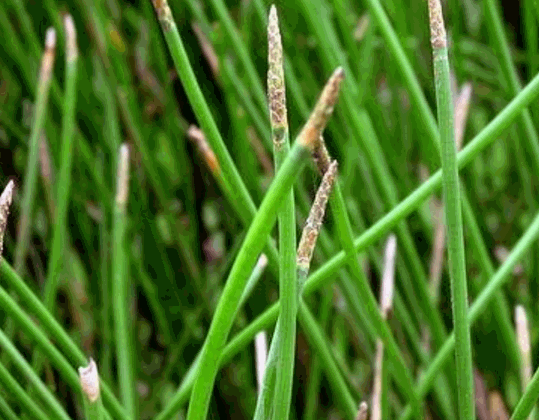Nghiên cứu trồng thử nghiệm cây củ năng (Eleocharis dulcis var. tuberosa.) tại khu vực Đồng bằng sông Cửu Long
Nghiên cứu do các tác giả Đào Phú Quốc, Lê Huỳnh Bảo Quyên, Trần Nam Trung, Trần Phương Anh, Nguyễn Thị Phương Thảo, Lê Quốc Vĩ, Hồ Tô Khải Mùi, Phạm Thị Thu Hằng, Nguyễn Phi Ngà – Trường Đại học Quốc gia TP. Hồ Chí Minh, tác giả Lê Bửu Thạch – Viện Hàn lâm Khoa học và Công nghệ Việt Nam, Đồng Thị Minh Hậu – Tổng cục Môi trường thực hiện.

Đồng bằng sông Cửu Long có diện tích tự nhiên hơn 40.000 km2, chiếm phần lớn là đất ngập nước theo mùa và theo thủy triều. Diện tích lúa của dùng khoảng 1.700 đến 1.900 hecta (Bộ Tài nguyên và Môi trường, năm 2014). Tuy nhiên thực tế cho thấy việc canh tác cây lúa mang lại nguồn lợi kinh tế không cao. Thời gian gần đây, tại Hội nghị đánh giá kết quả thực hiện Nghị quyết số 120/NQ ngày 5 tháng 8 năm 2019 do Bộ Nông nghiệp và Phát triển Nông thôn tổ chức, các nhà kinh tế học khuyến cáo nên giảm diện tích lúa và tìm kiếm giống cây trồng vật nuôi khác có giá trị kinh tế cao hơn thay thế diện tích trồng lúa kém hiệu quả.
Năng ống (Eleocharis dulcis (Burm.f) Trin.ẽ Hensch) được xem là cây đại diện vùng đất phèn ở đồng bằng sông Cửu Long. Trong tự nhiên, năng ống có một thứ (variety) của loại này là E. dulcis var. tuberosa ((Schult) T. Koyama (gọi là củ năng hay mã thầy) có giá trị dinh dưỡng, y học và giá trị kinh tế khá cao. Hiện nay, nhiều nước trên thế giới đang canh tác loại này, đặc biệt Trung Quốc là quốc gia sản xuất nhiều nhất (Steve, 2000). Một số quốc gia đang canh tác cây củ năng tiêu biểu như Nhật Bản, Hàn Quốc, Úc, Nam nước Mỹ. Tại Mỹ, từ năm 1930, mã thầy đã được du nhập và trồng thử nghiệm tại các bạn Orlando, Florida với năng suất tới 92 tấn/ha (Morton và cs, 1988).
Ở Việt Nam loại này cũng được trồng từ lâu đời ở vùng núi phía Bắc như Cao Bằng, Lạng Sơn (Võ Văn Chi, 2005). Khu vực huyện Đơn Dương. tỉnh Lâm Đồng cũng được trồng trong khoảng 20 năm gần đây, sản phẩm được tiêu thụ tại thành phố Hồ Chí Minh hoặc các tỉnh phía Bắc. Hạn chế của vùng trồng năng củ tại Lâm Đồng là bởi vùng này chủ yếu là đồi núi, đất ngập nước là các thung lũng có diện tích tương đối nhỏ nên khó triển khai quy mô lớn cho nền sản xuất hàng hóa xuất khẩu.
Nghiên cứu này nhằm mục tiêu triển khai trồng thử nghiệm cây củ năng tại vùng đất có phân bố cây củ năng hoang dại nhằm tìm kiếm giống cây trồng phù hợp để chuyển đổi cơ cấu đa dạng hóa cây trồng và phát triển kinh tế - xã hội vùng đồng bằng sông Cửu Long.
Các khảo sát thử nghiệm được triển khai tại một số địa điểm thuộc khu vực ĐBSCL (quận Cái Răng – TP. Cần Thơ, huyện Láng Sen - tỉnh Long An, huyện Rạch Giá - tỉnh Kiên Giang) và một điểm đối chứng tại huyện Đơn Dương - tỉnh Lâm Đồng. Các thông tin về đặc điểm môi trường đất, nước tại các điểm thực nghiệm được ghi nhận. Kết quả khảo sát cho thấy cây củ năng khi được trồng tại quận Cái Răng có năng suất lý thuyết trung bình đạt 37,6 tấn củ/ha, tuy thấp hơn so với vùng canh tác truyền thống tại huyện Đơn Dương là 58,2 tấn củ/ha, nhưng vẫn có hiệu quả kinh tế cao hơn so với trồng lúa. Kết quả thực nghiệm cũng cho thấy cây củ năng có khả năng trồng tại các vùng đất ngập nước có pH > 5,8, độ mặn < 1,4‰ ở khu vực ĐBSCL.
Vân Anh
Tạp chí Nông nghiệp và Phát triển Nông thôn, Số 21/2019